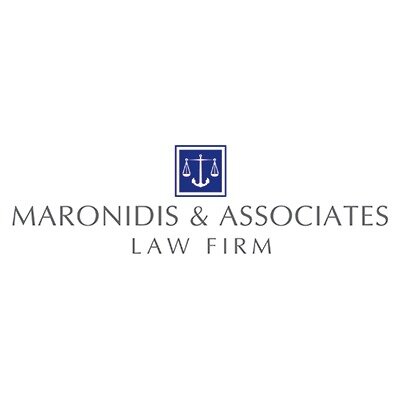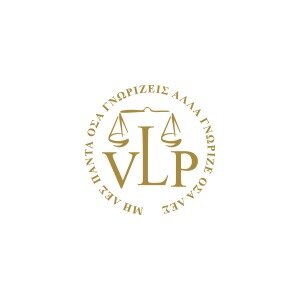Best Education Law Lawyers in Thessaloniki
Share your needs with us, get contacted by law firms.
Free. Takes 2 min.
List of the best lawyers in Thessaloniki, Greece
About Education Law in Thessaloniki, Greece
Education law in Thessaloniki, Greece, encompasses a broad spectrum of regulations and legal practices concerning the educational system. It covers areas such as student rights, teacher and staff relations, administrative processes, and compliance with national education standards. The educational framework in Greece is largely centralized, with the Ministry of Education, Research, and Religious Affairs setting policies that local schools and universities adhere to. Thessaloniki, as a major city with numerous educational institutions, frequently sees the application of these laws in various contexts, from disputes over student admissions to the enforcement of educational standards.
Why You May Need a Lawyer
Individuals and institutions may seek legal assistance in Education Law for several reasons. Parents or students may require legal intervention in cases of discrimination, bullying, or unfair treatment. Teachers and administrative staff might face employment disputes or require guidance on contractual matters. Educational institutions often need legal counsel to ensure compliance with regulatory mandates or when dealing with liability issues. Additionally, legal guidance may be necessary in navigating the complexities of special education needs and ensuring appropriate educational accommodations are met.
Local Laws Overview
Education laws in Thessaloniki are largely governed by national statutes, but there are specific local considerations. Key aspects include:
- Compulsory Education: Education is mandatory for children aged 6 to 15, during which time the state guarantees free education.
- Anti-Discrimination Policies: Greek education law prohibits discrimination based on ethnicity, gender, or disability, ensuring equal access to educational resources.
- Student Rights: Students have rights to privacy, expression, and a safe learning environment, protected by local and national legal frameworks.
- Special Education: There are specific regulations in place to support children with special educational needs, requiring schools to make accommodations.
- Teacher Employment Law: Employment laws cover the rights and obligations of teachers, including terms of employment, disciplinary processes, and retirement.
Frequently Asked Questions
What rights do students have in the Greek educational system?
Students in Greece have the right to equal education, privacy of personal data, safe learning environments, and freedom from discrimination. They are also entitled to express their opinions within school settings.
Can students with disabilities access education in Thessaloniki?
Yes, students with disabilities can access education through special educational provisions and accommodative measures mandated by law, ensuring inclusive education for all.
How can I address bullying in a Thessaloniki school?
If a child faces bullying, it's crucial to report it to the school's administrative body. Schools in Thessaloniki are required by law to have policies to prevent and address such issues.
What legal steps can be taken in case of discrimination in schools?
In cases of discrimination, individuals can consult a lawyer who specializes in education law to explore options, which may include filing complaints with the school administration or pursuing legal action.
Are there laws regarding homeschooling in Greece?
Homeschooling is generally not permitted in Greece, as compulsory education laws require attendance in state-recognized schools.
What is the role of a Parent-Teacher Association in Greek schools?
Parent-Teacher Associations in Greece facilitate collaboration between parents and teachers to enhance the educational experience and can serve as a platform for addressing school-related issues.
How are teacher disputes typically resolved in Thessaloniki?
Teacher disputes, such as issues related to employment contracts or workplace conditions, are often resolved through regulatory bodies or, if necessary, through legal proceedings.
What are the procedures for enrolling a child in a Thessaloniki school?
Enrollment procedures include submitting an application to the chosen school, along with necessary documentation, such as proof of identity and previous academic records. Deadlines and specific requirements may vary.
How do I find out about the regulations specific to universities in Thessaloniki?
University regulatory information can be accessed through the institution's administrative offices or Ministry of Education publications, with specifics often available on respective university websites.
Are there resources for understanding education laws affecting expatriates in Thessaloniki?
Yes, expatriates can access educational law resources through embassies, local government offices, or legal aid services that specialize in expatriate issues.
Additional Resources
For further assistance, consult the following:
- Ministry of Education, Research, and Religious Affairs: Provides comprehensive resources and policies.
- Local Educational Directorate: Offers guidance and information specific to Thessaloniki.
- Bar Association of Thessaloniki: Can assist in locating a lawyer specializing in Education Law.
- Parent-Teacher Associations: Often have valuable insight and support networks for addressing educational legal matters.
Next Steps
If you require legal assistance in Education Law, consider the following steps:
- Identify your specific legal needs or concerns related to education.
- Contact the Thessaloniki Educational Directorate for preliminary advice and information.
- Seek recommendations for reputable Education Law lawyers from the Bar Association of Thessaloniki or local community groups.
- Arrange consultations with potential lawyers to discuss your case and understand their approach.
- Ensure that any lawyer you hire has experience in dealing with education-related legal matters specific to Thessaloniki and Greek national law.
Lawzana helps you find the best lawyers and law firms in Thessaloniki through a curated and pre-screened list of qualified legal professionals. Our platform offers rankings and detailed profiles of attorneys and law firms, allowing you to compare based on practice areas, including Education Law, experience, and client feedback.
Each profile includes a description of the firm's areas of practice, client reviews, team members and partners, year of establishment, spoken languages, office locations, contact information, social media presence, and any published articles or resources. Most firms on our platform speak English and are experienced in both local and international legal matters.
Get a quote from top-rated law firms in Thessaloniki, Greece — quickly, securely, and without unnecessary hassle.
Disclaimer:
The information provided on this page is for general informational purposes only and does not constitute legal advice. While we strive to ensure the accuracy and relevance of the content, legal information may change over time, and interpretations of the law can vary. You should always consult with a qualified legal professional for advice specific to your situation.
We disclaim all liability for actions taken or not taken based on the content of this page. If you believe any information is incorrect or outdated, please contact us, and we will review and update it where appropriate.











